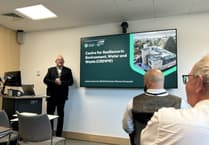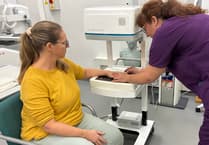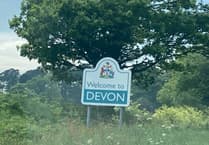South West Water is working in partnership with the University of Exeter through the Centre for Resilience in Environment, Water and Waste (CREWW), to develop an upgraded model to predict the location of lead pipes across its network.
This work is a key part of South West Water’s lead strategy for the next five years, which includes removing between 20,000 and 40,000 lead pipes.
It also supports the company’s long-term commitment to be completely lead-free by 2050.
South West Water’s current lead model predicts the possible location of lead pipes.
However, it is based on a snapshot of existing data, which means there are gaps in the data and its accuracy can be improved.
The upgraded model, which is being co-designed with the University of Exeter, brings together South West Water’s existing records with new data sources and applies machine learning techniques to allow it to adapt and improve as more information is gathered from the field.
By predicting the location of lead pipes more accurately, South West Water will be able to prioritise work, use resources more effectively, and minimise disruption for customers.
Phase 1 of the project is underway in Exeter and Plymouth, where the upgraded model is being tested against real-world findings.
Early results show it is already helping teams focus on the areas most likely to contain lead, supporting faster and more efficient pipe replacement works.
Phase 1 is due to finish at the end of October, with Phase 2 beginning immediately afterwards. The next stage will focus on improving usability and extending the model across the wider Pennon Group, including Bristol Water and SES Water.
Although no new lead pipes have been installed for decades, some older properties are still connected to the network by them. Over time, lead can dissolve into drinking water and water companies manage this by adding orthophosphate, a chemical that stops lead from entering the water supply.
While this method is effective, it adds both cost and carbon to the water treatment process.
The water in South West Water’s network is regularly tested and monitored to ensure that any lead present does not affect its safety or quality. Customers can be reassured that the water they receive meets all safety and regulatory standards.
This work is supported by Ofwat’s Green Recovery Programme, which funds projects that improve water quality and deliver long-term benefits for customers and the environment.
Jason Harvey, DWS Networks Transformation & Innovation Manager, South West Water, said: “Working with CREWW, we are developing a model that brings together data, research and field experience to improve how we find and replace lead pipes. This is a long-term challenge, and our focus is on building tools that make the process more accurate and efficient for the benefit of our customers.”
Professor Raziyeh Farmani, from the University of Exeter, added: “This collaboration between the University of Exeter and South West Water demonstrated how data-driven insights using machine learning can help to tackle real-world infrastructure challenges by identifying lead pipes to protect public health and empower smarter infrastructure decisions.”





Comments
This article has no comments yet. Be the first to leave a comment.